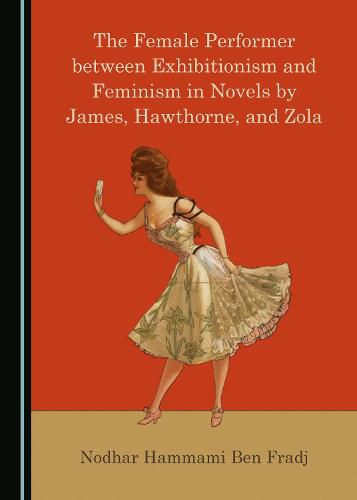Readings Newsletter
Become a Readings Member to make your shopping experience even easier.
Sign in or sign up for free!
You’re not far away from qualifying for FREE standard shipping within Australia
You’ve qualified for FREE standard shipping within Australia
The cart is loading…






This book is concerned with the figure of the female performer in nineteenth-century fiction. It explores the attitudes of Henry James, Nathaniel Hawthorne and Emile Zola towards women’s appearances on political daises and theatrical stages. Literature as a cultural force can either boost women’s participation in public life or bolster the patriarchal ideology. The book verifies Henry James’s feminist ideology that lies behind the positive representation of women’s political activism and acting, as two different modes of performance, through a comparative study between him and two of his contemporary novelists. It reflects the clash of opinions among nineteenth-century American and French authors on the issue of women’s public manifestation as caught between the spectacular and the political. While some writers have deemed it an exhibitionist demeanour, others have considered it a commitment to the feminist project.The first section shows how a feminist reading in the history of European and American female performers as emerging figures in the nineteenth century can help to understand the position of the figure in the literary works of the period. Nathaniel Hawthorne is shown to be an author who holds the same feminist temperament as James through his portrayal of a talented political rhetorician in his novel The Blithedale Romance, which is compared to James’s The Bostonians in the second section. The final part conducts a study in contrasts between James’s supportive rendering of the actress in The Tragic Muse and Emile Zola’s derogatory stereotyping of the female performer as a prostitute in his novel Nana.
$9.00 standard shipping within Australia
FREE standard shipping within Australia for orders over $100.00
Express & International shipping calculated at checkout
This book is concerned with the figure of the female performer in nineteenth-century fiction. It explores the attitudes of Henry James, Nathaniel Hawthorne and Emile Zola towards women’s appearances on political daises and theatrical stages. Literature as a cultural force can either boost women’s participation in public life or bolster the patriarchal ideology. The book verifies Henry James’s feminist ideology that lies behind the positive representation of women’s political activism and acting, as two different modes of performance, through a comparative study between him and two of his contemporary novelists. It reflects the clash of opinions among nineteenth-century American and French authors on the issue of women’s public manifestation as caught between the spectacular and the political. While some writers have deemed it an exhibitionist demeanour, others have considered it a commitment to the feminist project.The first section shows how a feminist reading in the history of European and American female performers as emerging figures in the nineteenth century can help to understand the position of the figure in the literary works of the period. Nathaniel Hawthorne is shown to be an author who holds the same feminist temperament as James through his portrayal of a talented political rhetorician in his novel The Blithedale Romance, which is compared to James’s The Bostonians in the second section. The final part conducts a study in contrasts between James’s supportive rendering of the actress in The Tragic Muse and Emile Zola’s derogatory stereotyping of the female performer as a prostitute in his novel Nana.